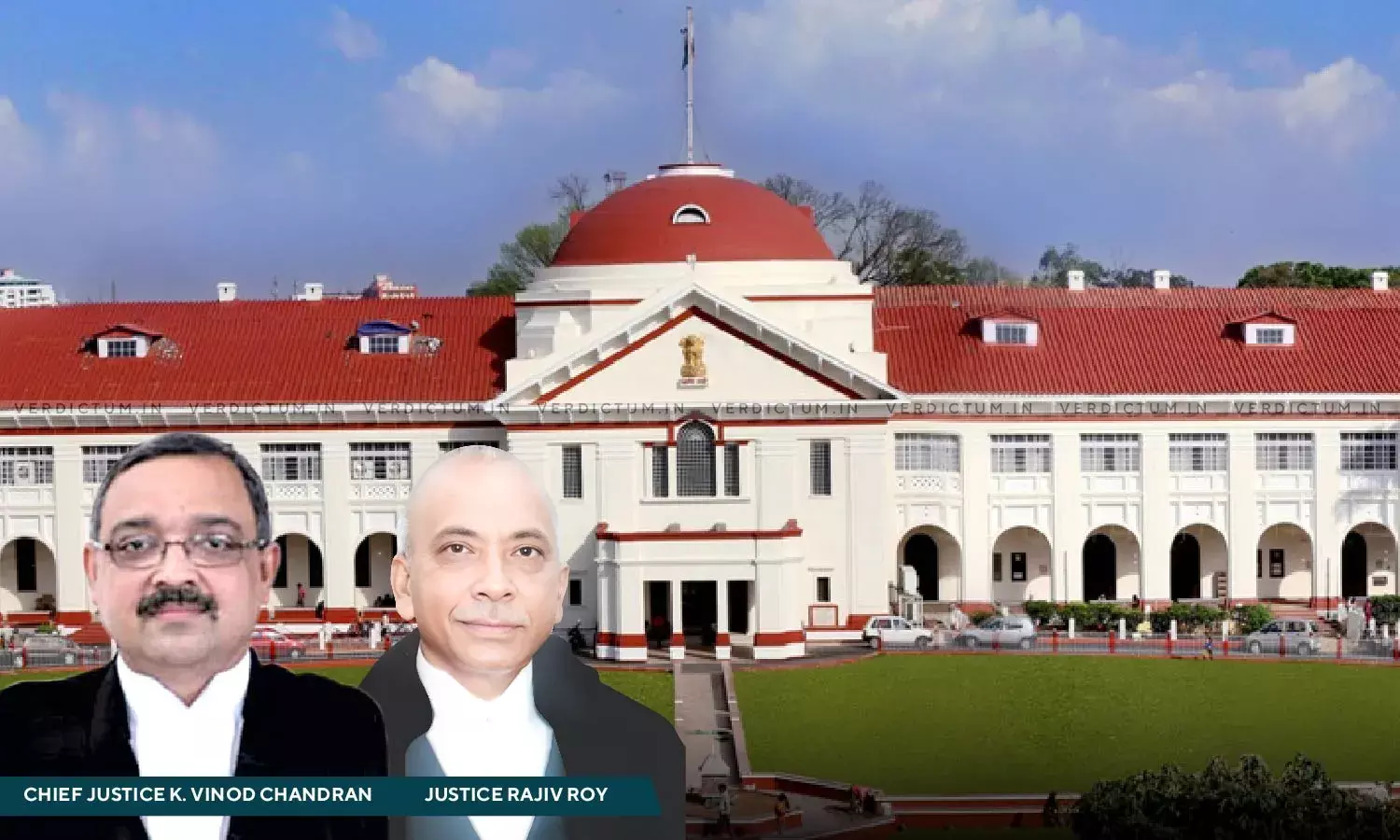Disciplinary Inquiry- Delinquent Failing To Respond To Charges Does Not Absolve Authority From Leading Evidence Establishing Guilt: Patna High Court
The Patna High Court recently while allowing a letters patent appeal has observed that merely because a delinquent employee-Senior Jail Superintendent herein, failed to respond to the charges relating to financial irregularities alleged against him, the Department shall not get absolved of the responsibility to lead evidence at the inquiry and enable the Inquiry Officer to enter a finding of guilt on the evidence led at the inquiry.
The matter pertained to dismissal of a Senior Jail Superintendent from service, pursuant to a disciplinary proceeding conducted and concluded, finding him guilty. The Court thus while setting aside the enquiry and the punishment imposed by the impugned order, has directed that the appellant would be entitled to be restored to his position as on the date of his suspension and also entitled to back wages during his suspension till retirement and pension thereafter.
Consequentially, a bench of Chief Justice K. Vinod Chandran and Justice Rajiv Roy noted, “We find the enquiry to be flawed beyond repair and no finding of guilt could have been held on the basis of the Vigilance Report alone. If the department or the Government was of the opinion that the allegations are inextricably connected with the Vigilance Case then they should have waited till the criminal case concluded. Having initiated a disciplinary inquiry; without proper proof being adduced, there cannot be a finding of guilt entered and a penalty imposed on that count. We find absolutely no reason to uphold the findings in the enquiry since it is without any evidence and the Disciplinary Authority also could not have found the delinquent to be guilty on the basis of either the findings in the inquiry or the evidence thereat; which we found to be totally absent”.
Advocate Jagnnath Singh appeared for the appellant, and AAG P.K. Verma appeared for the respondent.
In the matter, the writ petitioner was found to have not responded to the charges relating to financial irregularities simply on the plea of non-supply of documents. Therefore, the Single Judge bench in the impugned order had noted that the disciplinary proceeding is to be tested on the touchstone of preponderance of probability and since the criminal case against the officer is still pending hence no indulgence was called for at that moment. However, also observed that the petitioner would have the liberty to take recourse to such remedy if and when the criminal case ultimately is settled in his favour.
The division bench, however, was of the view that the enquiry should have been done while strictly complying with the principles of natural justice giving opportunity to the delinquent to defend charges levelled against him. as Courts seldom interfere. The bench further opined that such enquires only become subject to judicial review when the Inquiry Officer and the Disciplinary Authority have relied on extraneous matters and if there is no evidence to find the complicity of the delinquent employee.
A criminal case and a disciplinary proceeding initiated on the same transaction could proceed simultaneously as held by the Hon’ble Supreme Court, unless the facts are so inextricably linked that Disciplinary Authority in the matter did not await the result of the criminal proceeding, and instead proceeded with the matter and imposed the penalty of dismissal even before the criminal case was settled. The bench was thus of the opinion, that “…merely because the disciplinary proceeding was initiated on the basis of the Vigilance Report and the enclosures therein, it can be held that there is preponderance of probability in so far as the finding of guilt entered against the delinquent employee”.
While disagreeing with the findings of the Single Judge, the division bench further observed, “…the learned Single Judge has not gone into the aspect of whether there was any evidence on which the delinquent employee could be found guilty, even on preponderance of probability, in the inquiry proceeding. Merely because the delinquent employee failed to respond to the charges relating to financial irregularities, the Department is not absolved of the responsibility to lead evidence at the inquiry and enable the Inquiry Officer to enter a finding of guilt on the evidence led at the inquiry. It goes without saying that the inquiry though has to be held in strict compliance of the principles of natural justice; affording every opportunity to the delinquent employee to controvert his charges, if the delinquent employee does not cooperate, findings can be entered into on the evidence led”.
The bench in the matter further clarified that there was no question of a fresh enquiry since the appellant has superannuated.
Cause Title: Devendra Prasad v. The State of Bihar
Click here to read/download the Judgment




